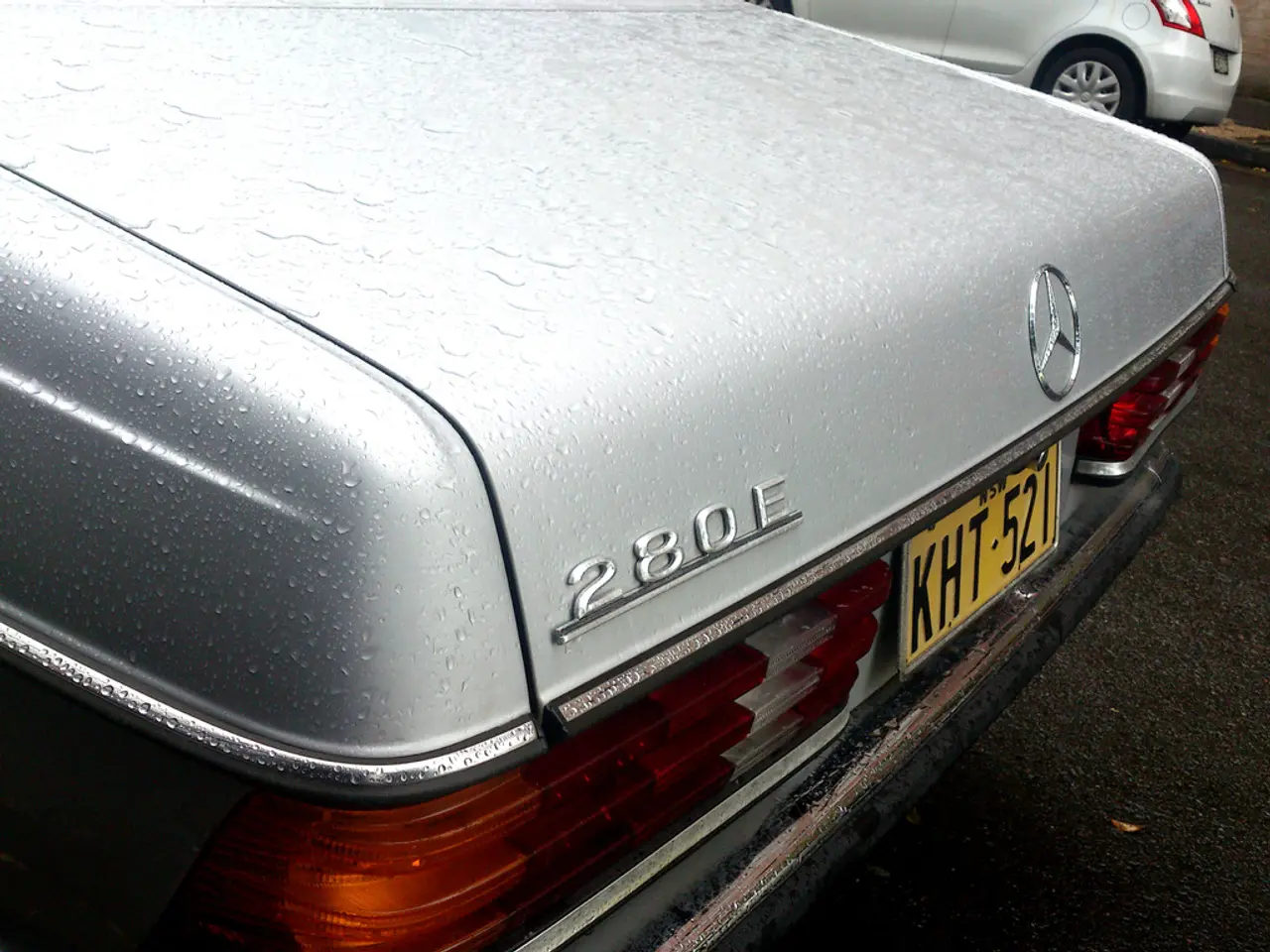Mercedes advocates against the prohibition of burner phones - Pushing hard against the restriction
In a bold move, Mercedes, under the leadership of CEO Ola Källenius, has strongly opposed the rigid 2035 ban on combustion engine cars in Europe. The company, along with other automakers, has expressed concerns about the potential collapse of the European auto industry due to the ban.
Källenius has appealed to the EU to conduct a reality check and not hold onto wishes regarding the combustion engine ban. He reiterated his concerns by stating, "We are driving full speed into a wall." The ban, according to Källenius, could lead to severe economic disruption, including a sales bubble before the ban and subsequent market collapse.
The ban, if implemented, could lead to the collapse or severe weakening of the European automotive sector, a major job provider and source of exports. It could also exacerbate challenges from Chinese competition and global supply chain tensions. Moreover, it could force costly, rapid shifts in technology investment and manufacturing.
Mercedes advocates for a market-led transition influenced by consumer preference. The company supports incentives such as tax breaks and low-cost electricity for EV charging, and investment in public charging infrastructure, which is expected to require 10-15 years to scale comprehensively.
Collaborative efforts like the Mercedes-BMW engine agreement aim to reduce development costs and comply efficiently with emissions regulations, possibly mitigating some economic strain on manufacturers.
The ban aims to reduce CO2 emissions towards climate goals, but Mercedes argues that a technology-neutral approach is more effective. Prematurely pushing to ban combustion engines without sufficient EV infrastructure and consumer readiness may not effectively help the climate, especially if it incites a final surge in fossil fuel car sales pre-ban.
The potential loss of jobs due to the ban could affect tens of thousands in the automotive industry, with experts estimating that 120,000 to 160,000 jobs could be lost.
As the combustion engine ban countdown is nine and a half years, more voices are rising against it. Källenius advocates for more technological openness, allowing other vehicles besides electric ones to be approved.
Despite the warnings, legislators have not yet shown willingness to listen to these concerns. Porsche has previously pointed out the impossibility of implementing the ban, and more automakers are expected to join the opposition.
On average, electric cars currently have a market share of 17.5 percent across Europe, indicating a slow growth in adoption. As the debate continues, it remains to be seen if the EU will reconsider its stance on the combustion engine ban.
- The European automotive industry, including major companies like Mercedes, is concerned that the 2035 ban on combustion engine cars could lead to a sales bubble before the ban and subsequent market collapse, which could be financially detrimental.
- The European business sector, including the automotive industry, is apprehensive that the ban on combustion engine cars could result in severe economic disruption, possibly forcing costly, rapid shifts in technology investment and manufacturing.
- Mercedes, along with other automakers, believes that the finance and transportation industries could be significantly impacted by the ban on combustion engine cars, with potential job losses in the tens of thousands in the automotive sector alone.




